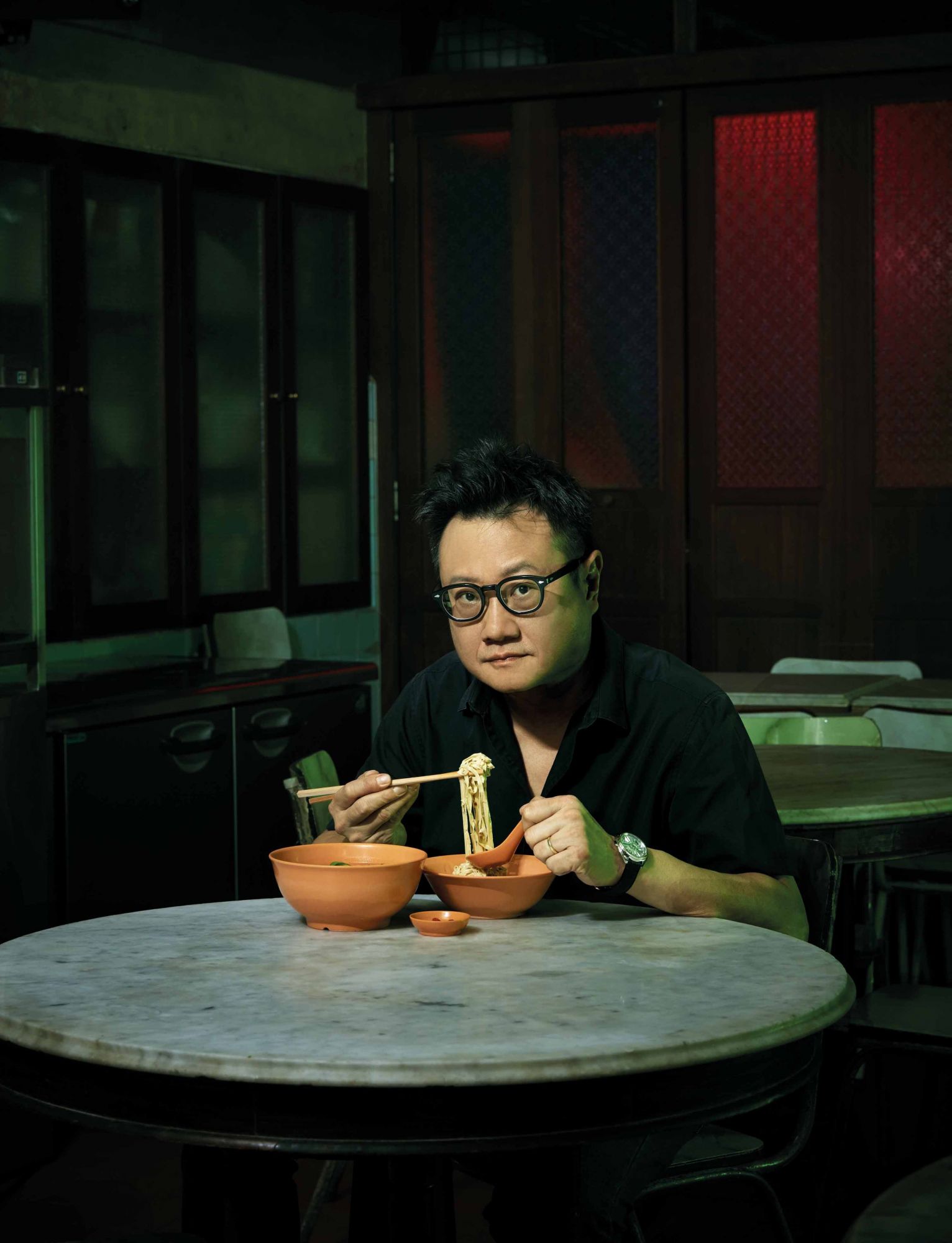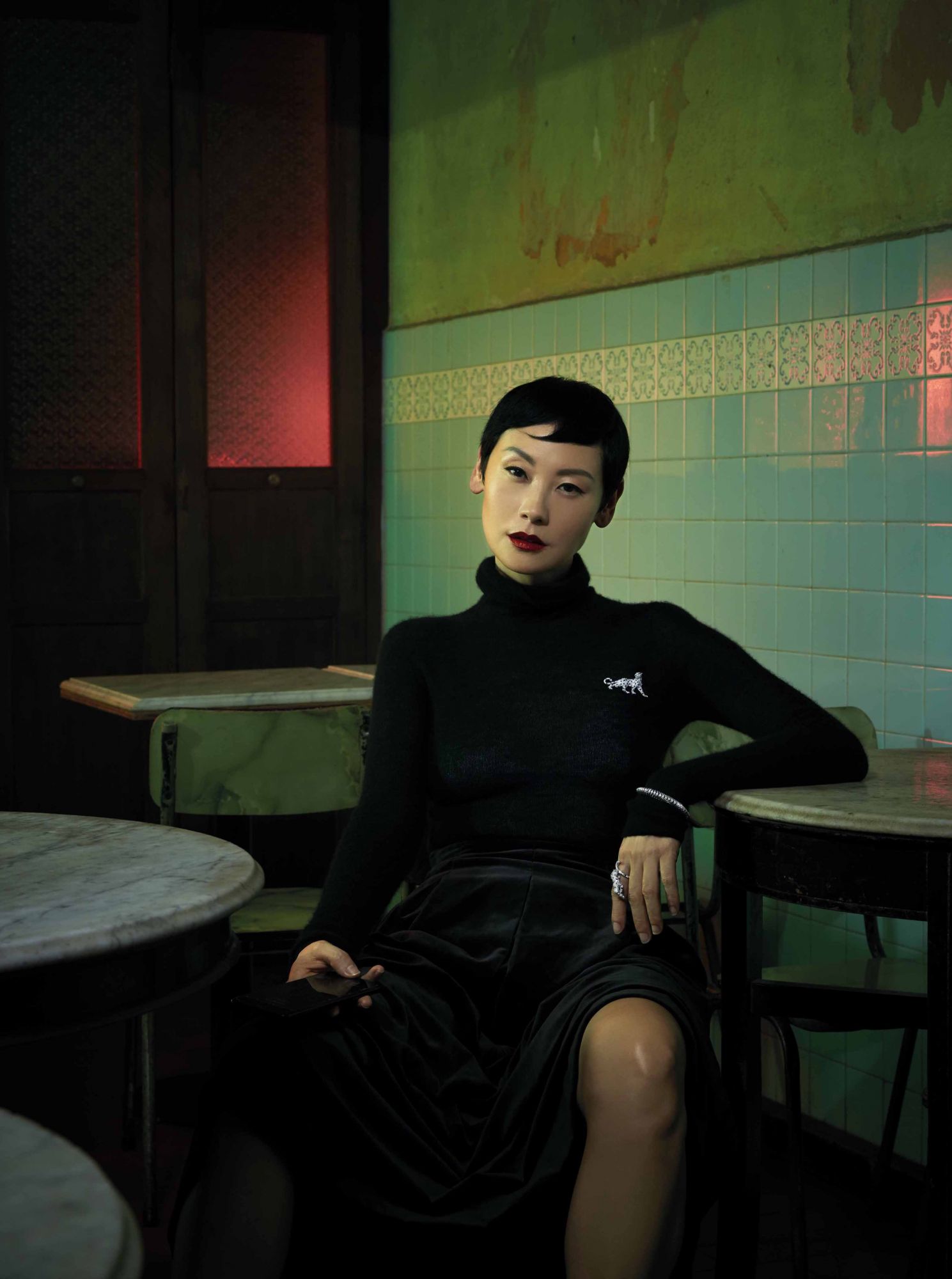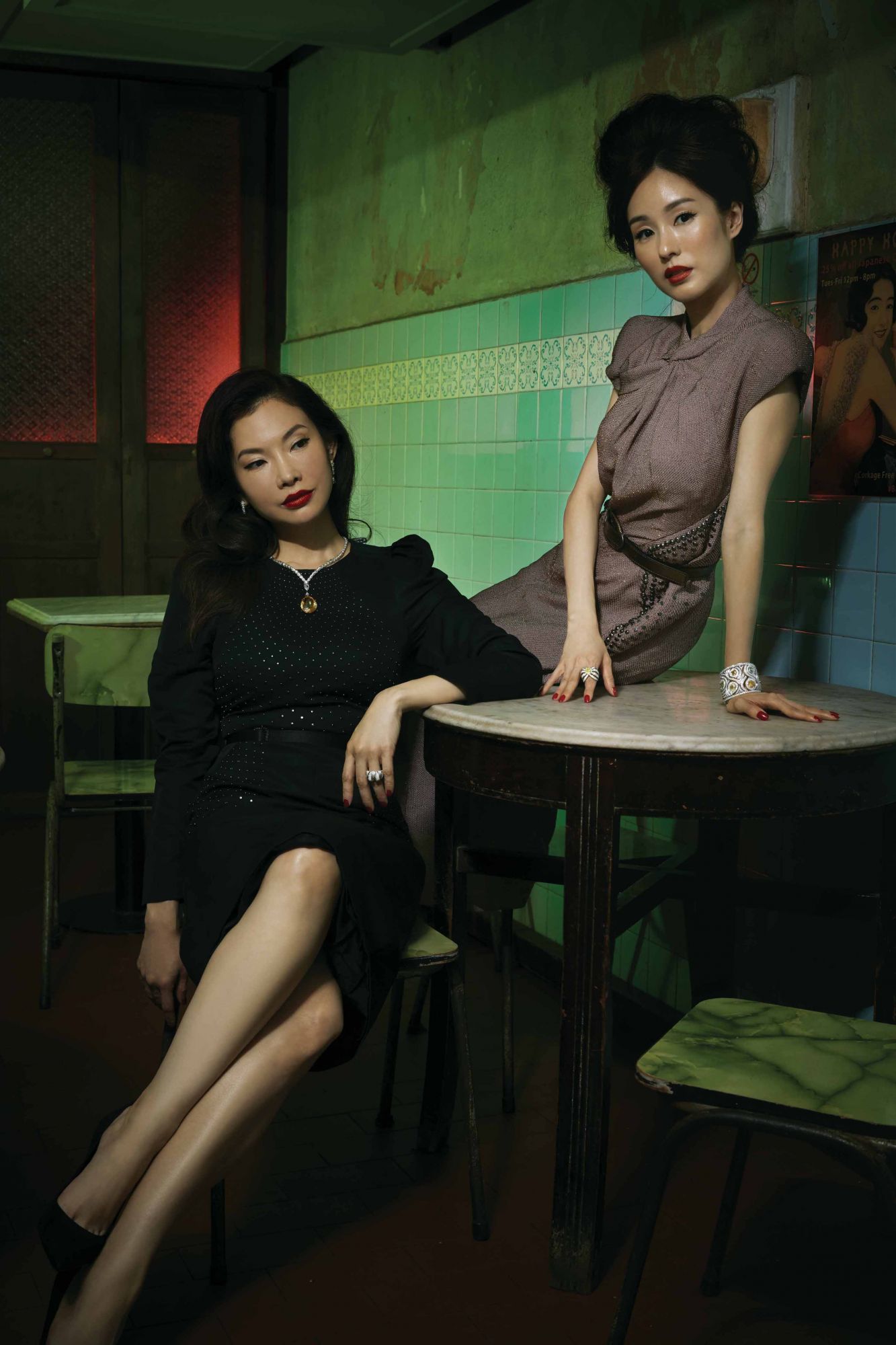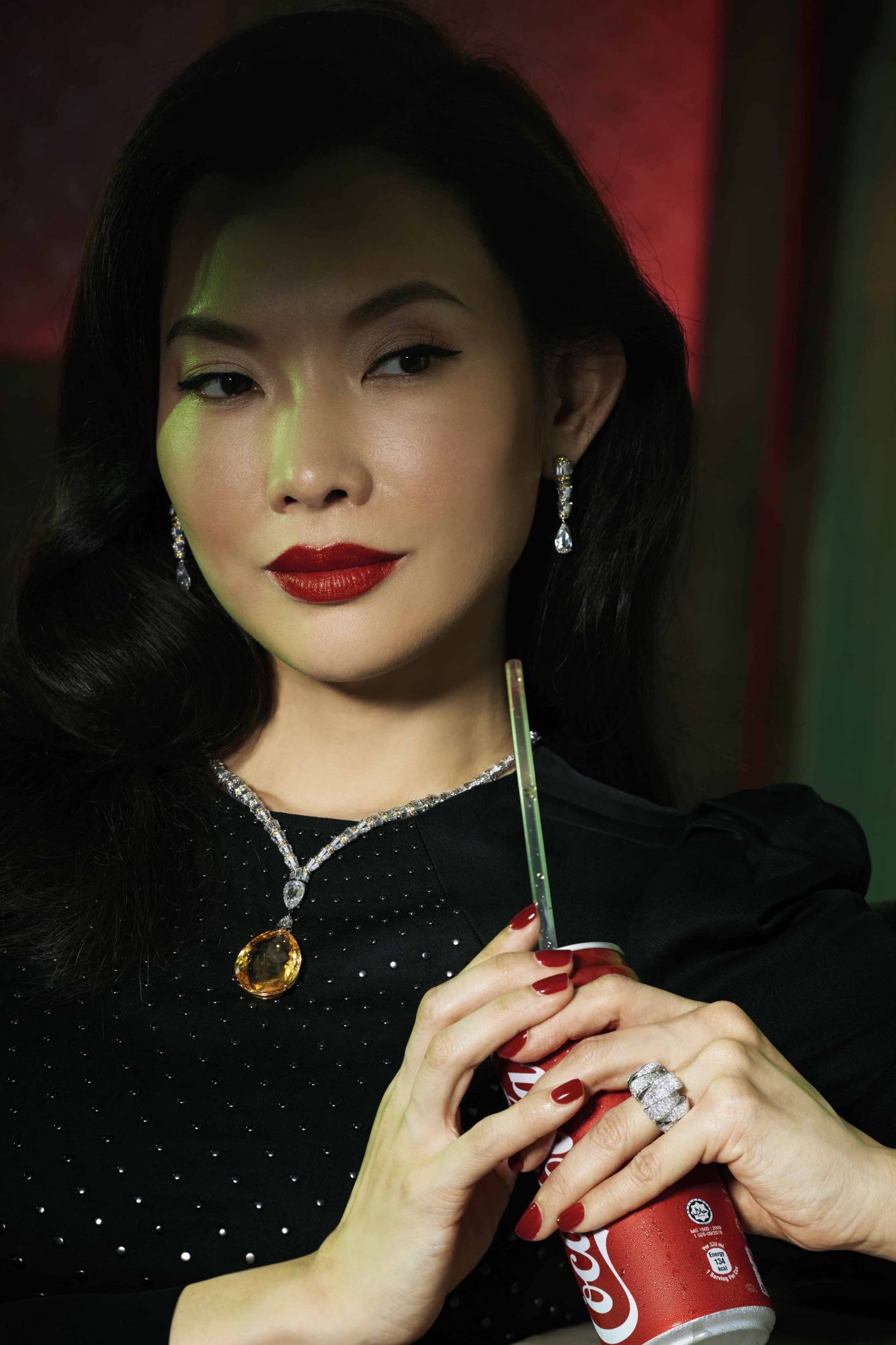Noodling Around
Both Mee Pok Man and 12 Storeys have been recently restored, and these newly digitised versions can be found in a new box set of his work, which will be released this month. An Eric Khoo movie usually features an alienated protagonist. An Eric Khoo anecdote, on the other hand, involves meeting interesting characters over drinks, at least judging by what he shares during this interview.
My Magic, his 2008 Tamil-language film about the relationship between a father and his son, was inspired by Bosco Francis, a magician he first met years ago. “We became friends, and once when we met up in a bar, he asked, do you want to see me eat glass? So first I told my friend, who owned the bar: if he succeeds, don’t charge me for the glass. Then Francis starts, and I kid you not, everyone there was squirming watching him eat the glass. I said, I’ve got to do a film with you. The opening scene will be you eating glass, and the great thing is I won’t have to do special effects, because it’ll be all real.”
In 2011, he made Tatsumi, an animated feature based on the life and work of seminal Japanese manga artist Yoshihiro Tatsumi, whose stories Eric had been enamoured with since his early twenties. “Our first meeting took place in a smoky basement bar in Japan,” he remembers. “We were there for three hours with an interpreter, and I wasn’t sure if he was getting what I was trying to tell him. But afterwards, he shook my hand and said: make the movie.” When the film screened at Cannes, Tatsumi squeezed his hand as they walked up the red carpet together. “He was happy. He only told me then that he’d always wanted to be a filmmaker, but never did become one, because he didn’t like to work with people. To be able to put his characters on the big screen at the biggest film festival, that was fantastic.”
His next project, Ramen Teh, is slated for a 2018 release and also taps into his love for Japanese culture. It will tell the story of a halfSingaporean, half-Japanese ramen chef (played by Takumi Saito) who comes to Singapore for the first time to find out more about his roots. “It’s a heartfelt drama about forgiveness and compassion,” says Eric. “I’ve always been fascinated with Japanese culture, there’s something very sublime about it. And it was a dream to have singer Seiko Matsuda as the female lead, I’ve been a big fan of hers since I was a kid.” A serious foodie himself, Eric’s eyes light up when he talks about the hybrid dish that lends the movie its title—a combination of ramen and bak kut teh. It will feature prominently during the movie’s promotion in Japan, and he has hopes that it could become an enduring fusion dish.
(Related: Liu Thai Ker On Building A Lovable Singapore)
If you include Ramen Teh, he has made seven feature films. After 12 Storeys, he also started producing other film-makers’ work, because “I wanted more people in the industry. It’s nice to have a community that can work and create together”. His work in this area links him to significant Singapore film-makers such as Royston Tan, Boo Junfeng and Anthony Chen. He is also full of praise for Kirsten Tan. “I love her movie Pop Aye. It’s so original, quirky, and has so much heart. I seriously feel she’s just totally unique and will go very far.” He was also an early supporter of Jack Neo’s film ambitions, back when the latter was still more known as a TV performer. Jack was also part of the 12 Storeys cast. “I love his humour,” Eric says. “I met him because years ago, I used to go to this hole in the wall place called A&T, which was a very cheap outfit to do editing. I’d be editing something, and Jack would be in another room working on his short films. He even won an award at the SGIFF for a short he submitted. Some of his early shorts are incredible, very dark. He’s very talented.”
He still makes it a point to watch a lot of short films by students, because it’s one of the best ways to spot new talent. “Most stories have been told before, so you have to find some new way to tell it, whether it’s emotionally or in terms of inventive form. When you watch a short, you’ll know in the first couple of minutes whether the film-maker has a voice of his own.” This year, in a full-circle moment, he was one of five judges for Cannes’ Short Film Competition Palme d’Or, and Cinéfondation, which focuses on shorts by film students. For the new film-makers he works with, “I always tell them, if you can, you should make your first feature film with all your heart, because you don’t know if it’ll be your last film. Then, if you can premiere it at a good festival, your film will be seen, get press, and get distribution. Having been in the industry for so long, I know it’s important to push the film, and get the sales agents on board. You have to think about the whole thing, not just the making of the film”.
All in all, he is pretty optimistic about the way the film industry here has grown since he got started. “Singapore’s not that big, and the directors who have emerged have done pretty well on international platforms. There’s definitely promise. And now, it’s a digital world. If you have a smartphone, you can be a film-maker. If you have a laptop, you can edit a movie. That opens the doors to many more auteurs who wouldn’t have the budget to do it otherwise. The films we made way back then are somewhat rudimentary compared to the films we’re looking at now, so just in terms of student work alone, there’s been a big jump in quality.”
What Lies Beneath
For the next phase of his career, Eric says he is going back to his roots—horror. As a child, this youngest son of businessman and philanthropist Khoo Teck Puat was just in time to experience the tail end of Singapore’s golden age of cinema, thanks to his mother Rose Marie. She loved horror movies, and had no qualms about taking her young son to locally-made pontianak films, as well as Hollywood fare such as The Exorcist. “At least once a week, we would catch the 4pm show at cinemas such as Capitol, The Globe and Lido. Really visceral horror movies were her passion. I was scared at first, but after a while, I just started wondering how they got those amazing shots.”
He has dipped his toes into horror before. In 2004, he produced a supernatural TV series, 7th Month (which is how he first got to know actress Ezann Lee, who later made her feature film debut in his 2005 film Be With Me). In 2009, his production company Zhao Wei Films set up an independent horror and fantastical genre label named Gorylah Pictures, together with Mike Wiluan’s Infinite Frameworks. He has also produced box office winners such as 23:59 (2011) and Ghost Child (2013).
“I just love the genre so much,” says Eric, rattling off a list of horror legends such as George Romero and Sam Raimi. “You have to respect these film-makers, because a lot of them started off with miniscule budgets and they had to be really inventive. Asian horror is sometimes even more scary, because everybody here believes in the spirit world, so the work becomes a lot more frightening. For a Singapore film to achieve success in the big box office internationally, I believe the only genre is horror.”
He is working on something now, which he can’t talk about at the moment, but we do catch fragments of his conversations with make-up artist June Goh, who happens to be quite an expert in special effects make-up; and with Ezann, whom he seemed to be courting for a new project. Her nearly wordless performance in Be With Me as Jackie, a lovelorn teenager, allowed her to show new depths as an actress. “It was a quieter, more internal kind of performance—a different challenge,” she says. In fact, her Jackie is the sole protagonist that appears on the cover artwork of the upcoming box set of Eric’s work. The reason: “Her longing expression speaks volumes and sums up the heart of all my works,” he explains. “Ezann is intuitive, sensitive and looks like the girls I used to draw when I was a teenager—chiselled and sad.”
As for why he is only delving into his beloved genre now, Eric says: “I couldn’t really make my first film a horror film, because then I’d be typecast. So I had to make movies that were a little bit more artistic first. Now, with more experience, I feel more brave, and more free to explore.”
Actually, even his artistic works are gently haunted—the dead often linger in his cinematic universe, silently observing the struggles of the living. Perhaps film itself is essentially a spectral medium, a capture of electric shadows that stay the same even as the real world transforms. Eric jokes that the buildings he puts in his films always end up being demolished afterwards, but the coffee shop where Mee Pok Man was set is still standing, in a Tiong Bahru that has gentrified almost beyond recognition. It transforms into a posh yakitori joint at night, but by day, there is still mee pok, and there is even a poster of Mee Pok Man on the wall, which feels almost like a talisman tacked on to arrest time. So, before we find out what a horror movie made by a Cultural Medallion recipient looks like, there is this: a reunion of some of his most indelible characters, in a location that has somehow persisted. Bunny, Trixie and Jackie were girls who yearned to be somewhere else, anywhere but here. In the movies, they didn’t all make it. But in this particular popular imagination, they have survived. Their vivid shadows haunt us still.




